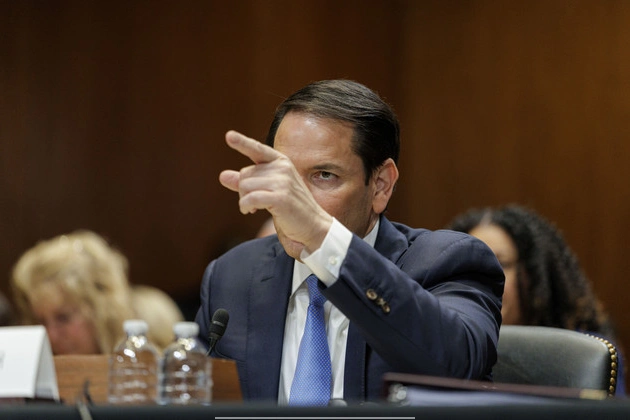
Secretary of State Marco Rubio has unveiled a new visa restriction policy aimed at foreign officials involved in censoring Americans’ online speech. Rubio emphasized the importance of free speech, labeling it a fundamental American right that should not be compromised by foreign governments.
Ramping Up Pressure on Global Allies
President Donald Trump and his administration have intensified their efforts to address what they perceive as growing hostility towards free speech, particularly in Europe. Vice President JD Vance made a significant foreign policy statement at the Munich Security Conference, highlighting concerns about censorship by continental leaders.
Rubio condemned foreign governments’ attempts to pressure U.S. tech companies into adopting global content moderation rules that could impact American social media users.
Championing American Rights
Asserting American sovereignty, Rubio stressed that foreign officials should not issue arrest warrants for U.S. citizens based on their social media posts on American platforms while on U.S. soil. He also denounced any demands for American tech platforms to conform to global content moderation standards.
Furthermore, Rubio directly called out European allies, signaling an end to passive tolerance for actions that undermine Americans’ rights.
A Broad Approach to Protecting Free Speech
In response to perceived crackdowns on free speech on college campuses, Rubio’s State Department has targeted foreign students, particularly those expressing pro-Palestinian views. The move aligns with broader conservative criticism of European tech regulations.
House Judiciary Chair Jim Jordan and other conservative voices have commended Rubio’s actions, highlighting the importance of holding those who stifle free speech accountable.
International Engagement and Accountability
Jordan’s interactions with European officials underscore the ongoing dialogue surrounding tech regulations and free speech. While European leaders deny targeting U.S. tech companies, the push for transparency and accountability persists.
Google and Meta, major players in the tech industry, are closely monitoring the developments, indicative of the global impact of Rubio’s policy.
Visa Bans as a Tool for Accountability
Historically, visa bans have been utilized to target individuals engaged in corrupt practices or human rights abuses. The lack of specific names in public announcements adds an element of uncertainty, prompting behavioral changes among potential targets.
The ongoing efforts to maintain transparency and accountability reflect the broader commitment to safeguarding American values and interests.
Regular updates and reviews are crucial to ensuring the continued relevance and effectiveness of policies like Rubio’s visa restrictions.











